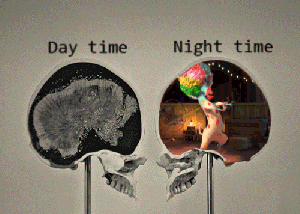Improve your sleep with Acupuncture
May 6, 2014

General medical guidelines recommend we should try to get between 7 and 8 hours sleep per night. Approximately 1 in 5 adults in Ireland suffer from Insomnia, and many people who can’t sleep often have to resort to using medications. Insomnia can negatively impact on a person’s life resulting in fatigue, low energy, difficulty concentrating, changes in mood, anxiety as well as affecting performance at work or school.
So what is Insomnia or sleeplessness?
Insomnia or sleeplessness is a disorder which includes symptoms such as the inability to sleep, difficulty in falling asleep, frequent waking, restlessness at night or a disordered sleep cycle. Chronic insomnia or sleeplessness can last for months or longer.
Insomnia is a condition we commonly see in our clinics. Clients can present to us specifically seeking treatment of their insomnia, or as is often the case they may present for a completely different problem and once we get an overall health picture it becomes apparent they have underlying sleep issues. We find that some of the main causes of sleep issues can be high levels of stress, underlying emotional or psychological conditions, chronic pain, unhealthy sleep habits, shift work, medications or an underlying deficiency or imbalance within the body. The increased pace of life and high levels of stress in society today have had a considerable impact on sleep. Along with this the increase in digital media and smartphone use means that we are constantly alert even when we go to bed as more often than not we don’t turn off our phones (I’m sure many of us are guilty of this!). Many people are still working, checking emails, responding to texts in the time where we should be giving our body and mind the opportunity to rest.
So how does acupuncture help insomnia?
Acupuncture involves the insertion of very fine needles into specific points on the body which helps to encourage the normal flow of Qi in the meridians, keeping the body in balance and reinforcing health. We’re not just treating the symptoms with acupuncture, but working on treating the root cause of disharmony in the body which is causing the condition. So acupuncture will not only treat Insomnia and improve your quality of sleep, but it also can improve your overall physical and mental health.
During a consultation we ask specific questions relating to sleeping habits and patterns. We also look at various areas of life which can have an effect on sleep patterns such as diet, exercise, work and home stressors and any underlying health issues. Based on this information, along with a tongue and pulse diagnosis, we then formulate a personalised treatment plan which includes acupuncture, diet and lifestyle recommendations, supplements, herbs and flower essences.
Here are some tips on how to get a good nights sleep!
- Go to bed and wake up at a regular time, even at the weekends. That very enjoyable weekend lie in can make us feel more tired when we go back to our normal routine on Monday morning!
- Do something quiet and relaxing in the hour before bedtime such as reading a book, practising relaxation techniques or meditation. Perhaps take a warm bath or shower an hour or two before bed.
- Create a comfortable sleeping environment, and avoid working or watching TV in the bedroom.
- Turn off the computer, tablet and mobile phone at least an hour before going to bed. Studies have shown that the light these emit stimulate the brain and make it more difficult to sleep.
- Avoid stimulants such as caffeine, alcohol and nicotine before bed. If you are struggling with sleep you may need to cut out that afternoon coffee!
- Avoid heavy meals before bedtime, it’s preferable to eat larger meals at least 2 to 3 hours before bedtime.
- Try herbs such as Camomile, valerian, lavender and hops which can all benefit sleep.
Sweet Dreams…..
